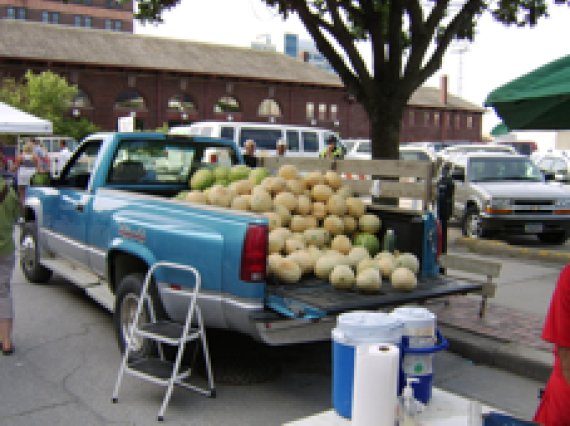‘Our basic question is: how can we feed cities in a fair and sustainable manner?’ says sociology professor Han Wiskerke, budget holder for the four EU projects. ‘A lot of food is already being produced in the vicinity of cities but it is often destined for export rather than the urban consumers up the road. In the ‘Supurbfood’ project we want to develop a link between local, small-scale production and conventional sales points such as supermarkets. That is why new food distribution companies such as Willem&Drees are participating in the project.’ The researchers in this project also want to reinstate the link between urban waste disposal and local food production. ‘In the past, left-over food used to be fed to the pigs but now these are separate systems’, explains Wiskerke. ‘As a result agriculture is missing out on nutrients from the local area.’ He is also thinking about reusing urban sewage water in farming to make better use of phosphates. The researchers are not so much interested in the technology as in the organisational and legal options for creating such a link. The study will cover the metropolitan regions of Rotterdam, Rome, Vigo, Bristol, Ghent, Riga and Zurich.
In the second project, ‘Glamur’, the sociologists will be comparing the local food chains with global food chains in terms of their economic, social, ecological and ethical impact. In all these projects, the sociologists are collaborating with a regular group of sociologists, environmental economists, geographers, land-use planners and policy science experts in Britain, Italy, Switzerland and Latvia.
They also collaborate with the administrators in the metropolitan regions. These connections date from 2010, when Wiskerke secured two other EU projects. One of them, ‘Foodlinks‘, is aimed at the exchange of knowledge between researchers and urban administrators. ‘Cities play an increasingly important role in formulating food policy’, says the professor. The other project, ‘Purefood‘, involves a training network being set up with twelve doctoral students, three of whom work in Wageningen.
As budget holders, the rural sociologists have received a total of nine million euros from the EU, of which two million will be spent in Wageningen.

